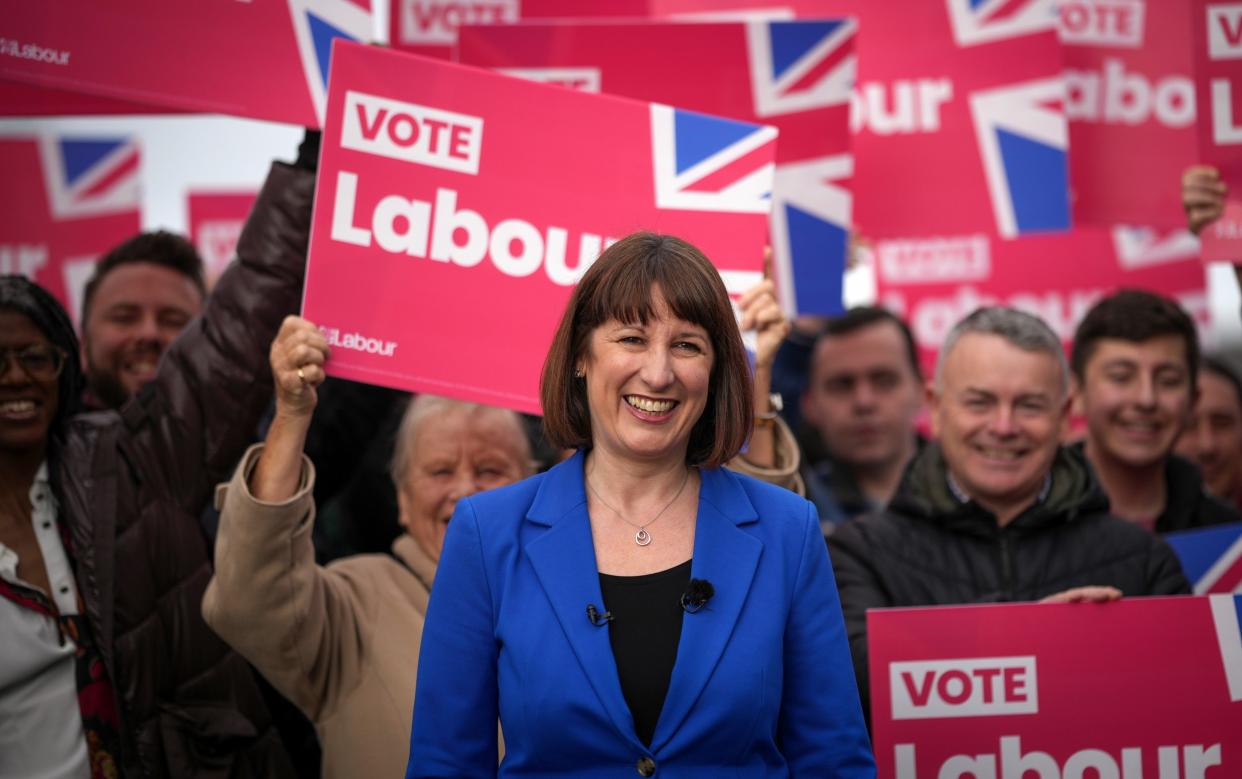Why Labour isn’t taking election victory for granted

When the Labour shadow cabinet meets every week, it is not uncommon for it to be shown a deck of slides spelling out election shocks of the recent past.
It is the favoured visual aid of two of the most influential figures in the court of Sir Keir Starmer – Morgan McSweeney and Pat McFadden, respectively the adviser and the MP leading the party’s election campaign.
Donald Trump’s surprise win in the 2016 US presidential race, when the polls predicted he was going to lose, is in there. So are a smattering of European campaigns when the tide turned late on.
The message is the one drilled into every member of the shadow ministerial team, and every Labour MP – there is no room for complacency.
For a party so far ahead in the opinion polls and set to give the Tories their worst drubbing in a century, according to a recent survey, Labour can be skittish.
Share a coffee with frontbenchers or advisers and it is clear that the ghost of 1992 – and, to a lesser extent, 2015 – still haunts those nervous to believe in the polls.
And so, even with this mammoth lead, there are mutterings about whether the Labour strategy is really the right one and whether, if the party does win office, it could yet come back to bite them.
Some surrounds cautiousness on policy. The leadership wants to make Labour the “smallest target possible” for the Tories in the campaign battle to come.

But for shadow cabinet ministers who want to deliver change in office, frustrations abound. Rachel Reeves, the Labour shadow chancellor who preaches “iron discipline” on fiscal matters, has been nicknamed “Dr No” by some aides to other top Labour figures.
One adviser to a shadow cabinet minister said: “I can totally understand the frustration if you are seeking more spending and they are saying no.”
The disillusionment of the Left of the Labour party with Sir Keir’s drive to win over centrist voters has been taken as a badge of pride by the leader’s team.
But now concerns are bubbling about whether, when combined with the anger of Muslim voters at Labour’s Israel-Gaza stance, there could be some electoral impact.
On Friday, The Guardian’s front page splashed on the concerns of pollsters and party insiders that Labour could lose some of its target seats if loyalists abandon ship.
Bristol Central and Sheffield Hallam, former Liberal Democrat leader Nick Clegg’s old seat, were picked out as two Labour-held seats packed with progressives that could be lost.
Patrick English, YouGov’s director of political analytics, said: “If there is a big anti-Labour feeling among Muslim and young voters, that could cost them in a big way in places where those groups make up 10-15 per cent of the population each.
“If the polls are level or even if Labour is five points ahead, it could be extremely damaging for Labour and could mean they fail to win a whole host of English bellwether marginal seats.”
Meanwhile, The Guardian reported that Labour membership was down, not up, even with power in the party’s grasp after 14 years.
Around 23,000 members have left since the start of the year. The number, at 366,660, is still high when compared to the Tories, but lower than before the conflict in Gaza began.
A second source of jitters comes from the drive to win back voters in the Red Wall, traditionally Labour seats in the Midlands and the North that went Tory in 2019.
The Labour shadow cabinet was told this week that the party was not attracting as many Tory voters as they hoped, according to The Times.
It was also reportedly told that a third of Red Wall voters cannot remember hearing anything about Labour in the last fortnight, up from the figure before Christmas.
It is in this context that the saga around Angela Rayner, the deputy Labour leader and champion of the Left, and the question of her past living arrangements, has political bite.
Ms Rayner is facing a police investigation into the question of which home she was permanently living in that could drag on for weeks.
Meanwhile, Sir Keir, whose working class background can be missed by voters who hear his clipped southern accent in TV clips, is left to convince Red Wallers to come back to Labour himself.
Splits in Labour could become more pronounced if the polls tighten – a change expected by both Sir Keir’s and Rishi Sunak’s camps in the short election campaign.
Momentum, the activist group that championed Jeremy Corbyn’s Labour leadership, has become one of the most vocal critics of Sir Keir’s regime.
When the Labour leader this week pledged to spend 2.5 per cent of GDP on defence and to remain committed to the Trident nuclear deterrent, Momentum issued a withering response.
“A magic money tree for bombs and bullets, but not for hungry kids,” said a spokesman. The core sentiment is shared more widely on the Left.
Sir Keir is coming under pressure to lift the two-child benefit cap brought in by George Osborne, the then Tory chancellor, in the austerity years. Labour’s current position is to keep it.
Expect calls for extra cash for social care, support on tuition fees and childcare in the months ahead as pressure builds for eye-catching policies in the manifesto.
Sir Keir’s safety first strategy may well deliver victory. But that does not mean the internal mutterings will stop before polling day.



